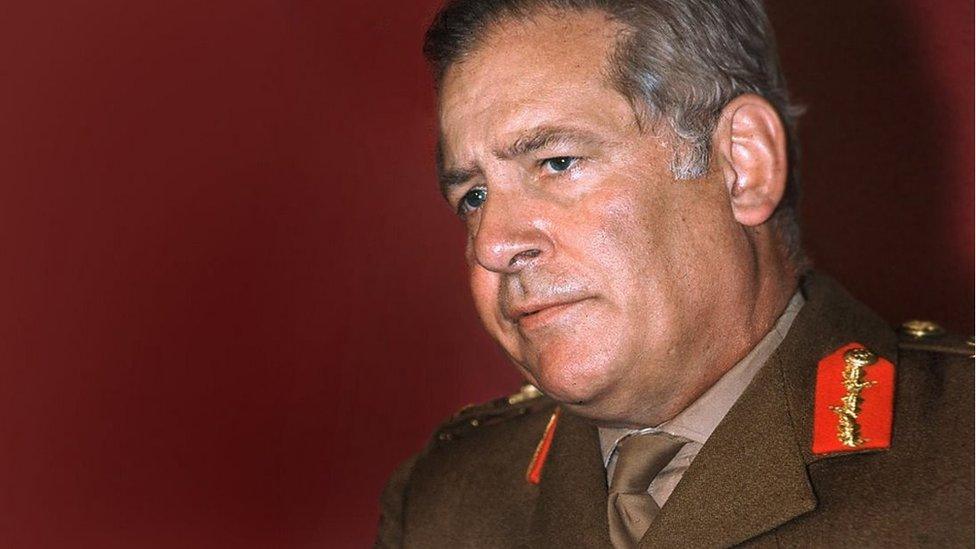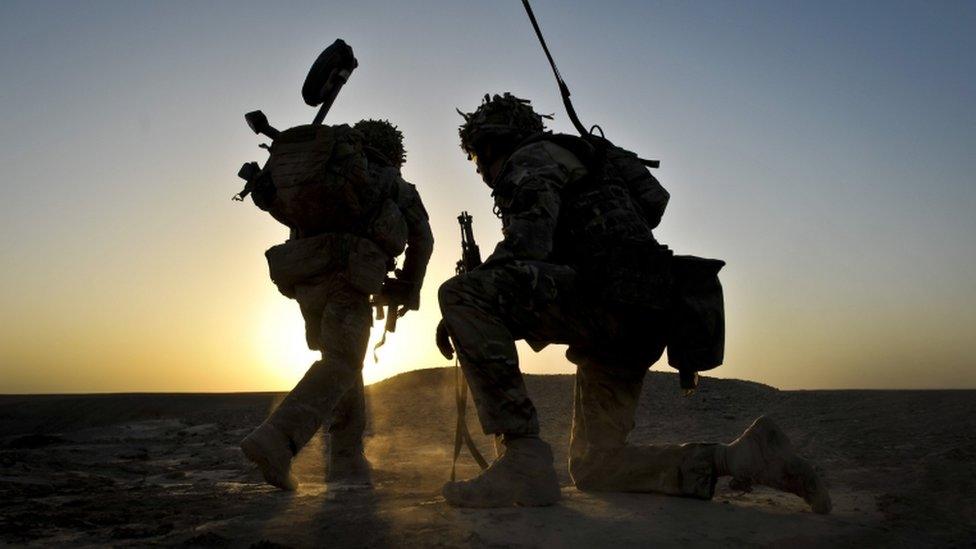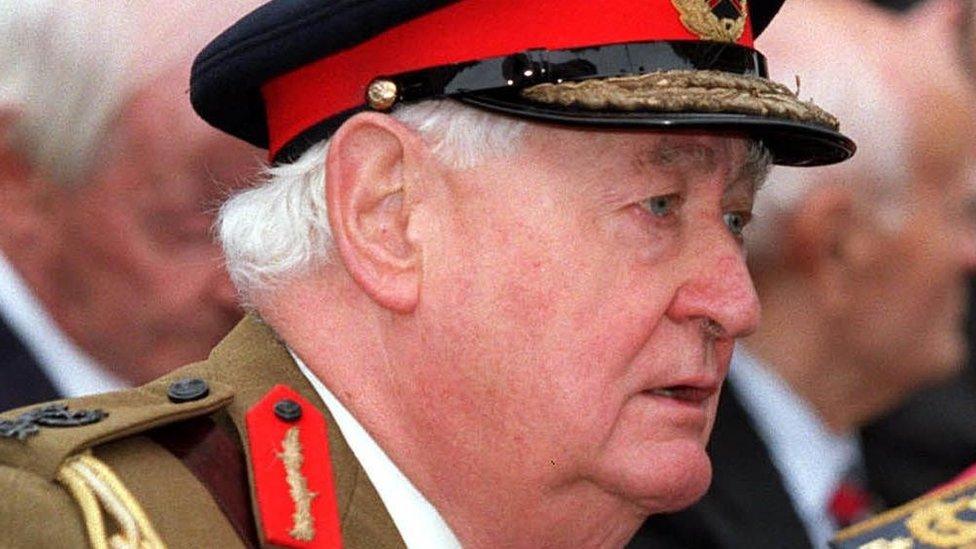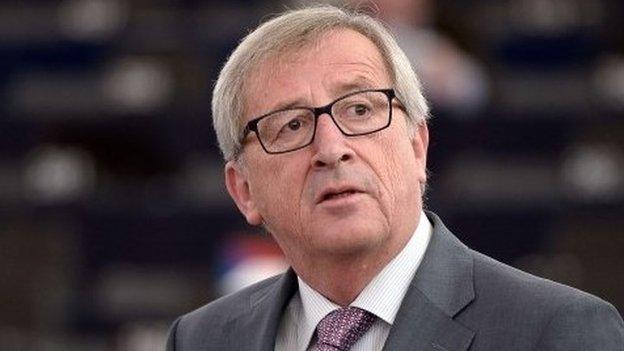EU referendum: Ex-army chief Lord Guthrie switches to Leave
- Published

Former defence chief Lord Guthrie has switched sides to the Leave campaign in the EU referendum, saying he is worried by the prospect of "a European army".
In February the ex-chief of the defence staff signed a Downing Street letter calling for the UK to stay in the EU.
But he has told the Telegraph that was "a mistake" and said he believed a vote to Leave "is better for defence".
The government has previously said Britain will "never be part of an EU army".
There are five days to go until the UK decides on its future in the European Union, in a referendum on 23 June.
Both the Remain and Leave groups have suspended their national campaign events until Sunday, following the killing of Labour MP Jo Cox on Thursday.
'Euro vanity'
In February, 12 of the UK's senior military figures - including Lord Guthrie - signed a letter, released by Downing Street, saying the UK was stronger in the EU at a time of "grave challenges".
They said that while Nato was the most important alliance for UK security, the EU was an "increasingly important pillar of our security".
But in an interview in Saturday's Daily Telegraph, external, Field Marshal Lord Guthrie said he had changed his mind because he was concerned at moves to create a European army, which he said would be a "disaster".
"I think a European army could damage Nato. It is expensive. It's unnecessary duplication to have it. It would appeal to some Euro vanity thing," he said.
"There's a feeling that those backing the European army are doing it for political reasons rather than military ones. They want to be able to boast, 'Look! We've got a European army'. That is dangerous."
Lord Guthrie said foreign policy "needs to be backed up by defence", and added: "It would be a signal disaster to have a European army as rivals to Nato."
"I am concerned that the Army which I was in for 45 years could become very damaged and therefore less useful to our country."
The former defence chief said that while he felt "more European than I do American" it was "absolutely unrealistic to think we are all going to work together".
"When things get really serious, we need the Americans. That's where the power is. If the Americans had been around at the time of the Ukraine events, I doubt whether Putin would have dared be so bold."

Lord Guthrie said he feared the British Army could "become less useful to our country"
Many European politicians, including EU Commission president Jean-Claude Juncker, have said a European army is needed to stand up to Russia, but EU treaties are clear that it could be blocked by Britain.
At the moment the UK takes part in EU military operations through the Common Security and Defence Policy, but those are focused on peace-keeping and humanitarian assistance. Britain has also previously argued against proposals to integrate further the armed forces of member states.
'Overwhelming consensus'
Defence Secretary and Remain campaigner Michael Fallon ruled out the prospect of the UK ever joining an EU army, back in May.
"Our security rests on Nato. No one seriously disputes that. Britain will never be part of an EU army," he said.
"We have a veto on all EU defence matters and we would oppose any move to create one. In fact, I don't know any European defence minister who wants a European army," Mr Fallon added.
He also said that Britain would be "smaller and weaker" outside the EU.
And Britain Stronger in Europe have previously said there is an "overwhelming consensus" among military chiefs that Britain is "stronger and safer" in the EU.
There have been a series of letters from UK, US and Nato commanders urging Britain to remain in the EU - or risk losing influence, during the UK's EU referendum campaign.
But Veterans for Britain, a campaign group set up by serving and former military personnel including General Sir Michael Rose, a former director of special forces and a commander in Bosnia, has argued that the UK's national interest would be best served outside the EU.
- Published24 February 2016

- Published9 March 2015

- Published25 May 2016

- Published13 March 2015
